Pawscessories is reader-supported. When you buy via links on our site, we may earn an affiliate commission at no cost to you.
Learn more.
If you have a dog, it’s important to be aware of the dangers of the Parvovirus. This virus is highly contagious and can cause serious health problems in dogs.
One of the most telltale signs that your dog may have contracted this virus is changes in their stool. In this blog post, we’ll talk about what parvo poop looks and smells like, how to disinfect your home if you suspect your dog has been infected, and the best ways to prevent your dog from getting sick with this virus in the first place.
Table of Contents
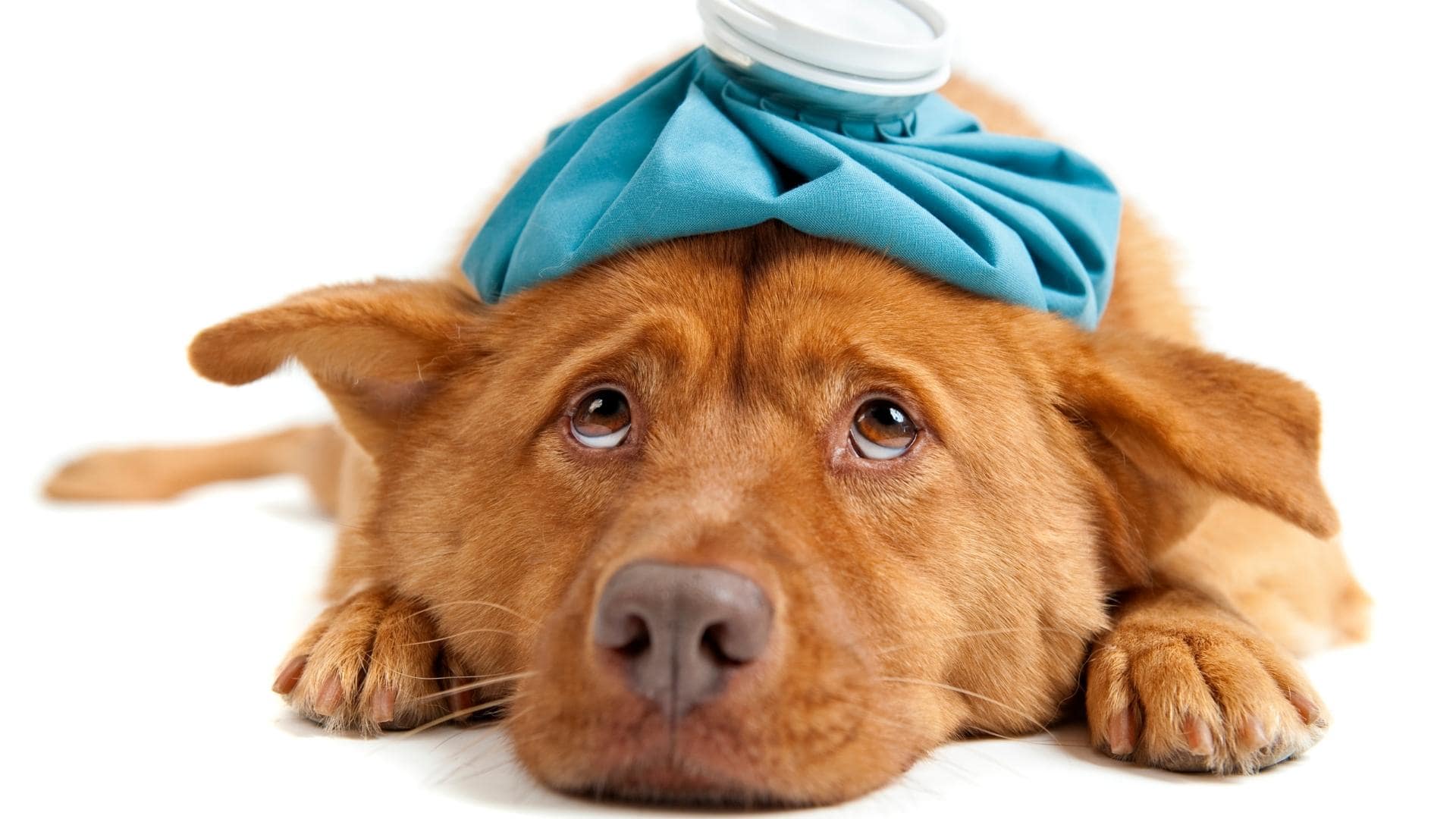
What is Parvo (Parvovirus)?
Parvo is a virus that primarily affects dogs, though it can also infect cats and other animals. It is highly contagious and can be deadly, particularly to young puppies.
The virus attacks the gastrointestinal tract, causing severe vomiting and diarrhea. This can lead to dehydration and death within days if left untreated. Parvo is most commonly spread through contact with infected feces, so it is important to practice good hygiene and keep your pet away from areas where other dogs have been known to relieve themselves.
There is no specific cure for Parvo, but prompt treatment with fluids and antibiotics can help to improve the chances of survival. Treatment for Parvo is typically supportive in nature, focused on rehydrating the dog and managing symptoms.
Unfortunately, it often takes weeks or even months for a full recovery. Prevention is the best way to protect against Parvo, and all dog owners should ensure that their animals are up-to-date on their vaccinations.
What Does Parvo Poop Smell Like?
One of the most distinctive symptoms of Parvovirus is the odor of the diarrhea, which has been described as similar to that of rotting meat.
As the disease progresses, the stool may become black or tarry in appearance. If your dog’s poop displays any of these symptoms, it is crucial to seek veterinary care immediately. With treatment, many dogs make a full recovery from Parvovirus. However, without treatment, the disease can be fatal.
The virus attacks the gastrointestinal tract, causing severe vomiting and diarrhea. In addition to being extremely unpleasant, this can also lead to severe dehydration and an increased risk of secondary infections.
Something else important to note is that if your dog’s poop has this terrible odor, it means the virus is progressing in their system, and they need immediate care. It’s not something to be taken lightly and should be brought to a vet’s attention as soon as possible.
What Does a Dog’s Poop Look Like If They Have Parvo?
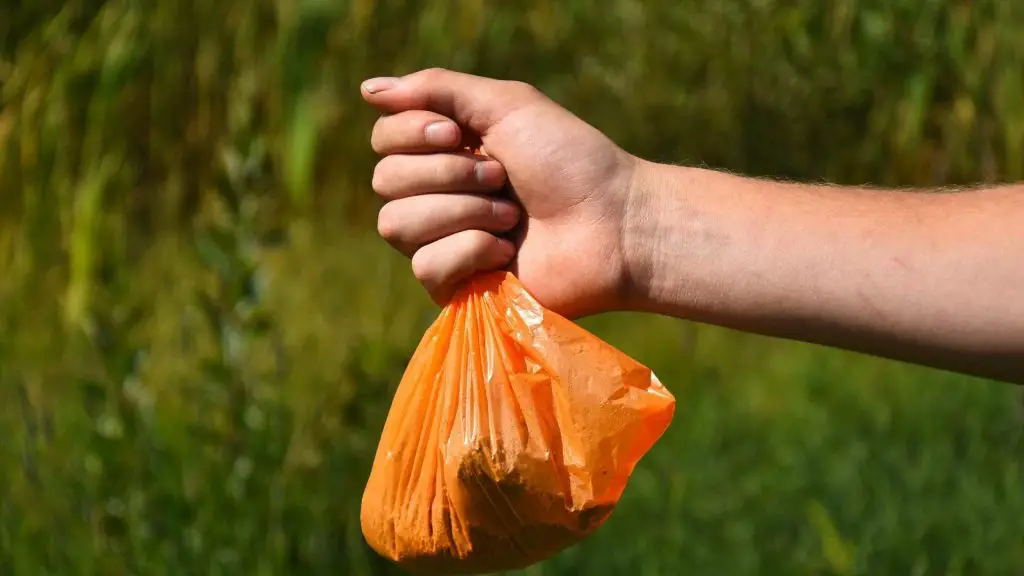
If you suspect your dog has Parvo, one of the first things you’ll want to do is check their poop. Parvo is a virus that primarily affects puppies, and it can cause severe diarrhea.
In many cases, the diarrhea will be bloody or tarry in appearance. You may also notice that your dog’s stool is more watery than usual and that they are having trouble holding it in. If your dog’s poop looks like this, it’s important to take them to the vet as soon as possible.
What Are Initial Signs That a Dog Has Parvo?
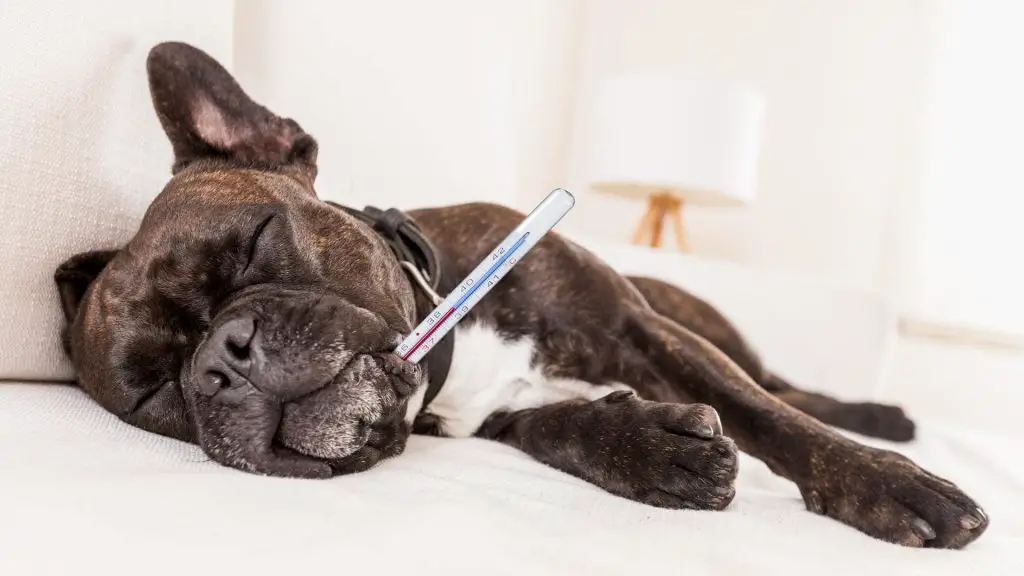
Symptoms of Parvo are primarily lethargy, loss of appetite, vomiting, and diarrhea. Diarrhea is often the most severe symptom and can be bloody. Vomiting may also contain blood. These symptoms usually develop within two to three weeks after exposure to the virus.
Some dogs won’t have all the symptoms, but vomiting and diarrhea are the most common initial signs. If your dog is unvaccinated for CPV and is vomiting and having diarrhea often, they should have a vet look at them.
How Does a Dog Get Parvo?
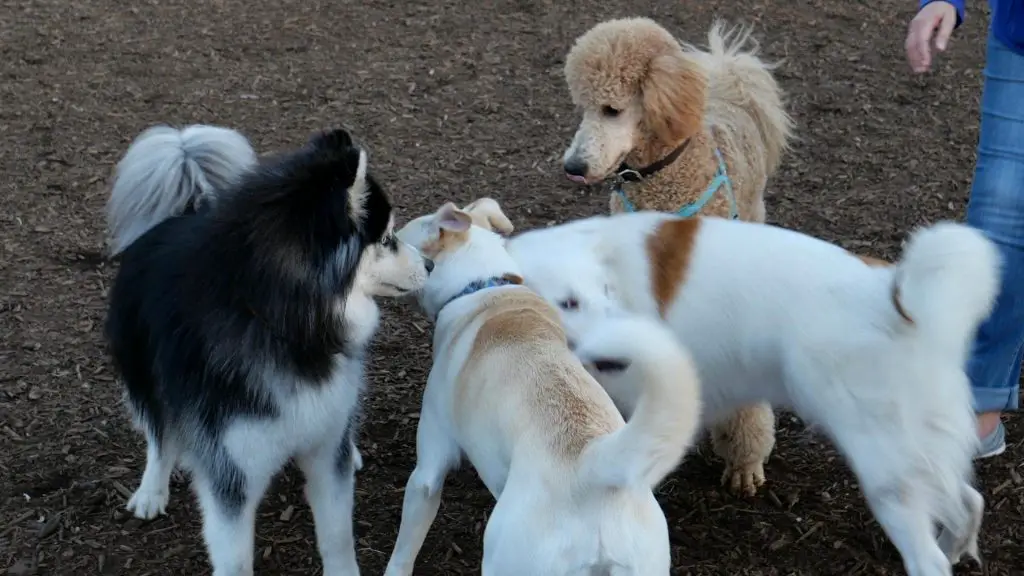
The Parvovirus is typically spread through contact with infected feces, and it can easily survive in the environment for long periods of time. Once a dog is infected, the virus attacks the gastrointestinal tract, causing severe vomiting and diarrhea.
Parvo can lead to dehydration, shock, and even death if left untreated. Fortunately, there are several vaccines available that can help to protect dogs from this deadly virus. However, even vaccinated dogs can still contract Parvo if they come into contact with contaminated feces.
For this reason, it is important to keep your dog away from areas where potentially sick dogs have defecated, such as parks and playgrounds.
Ways To Disinfect Parvo In Your Home Or Yard
Fortunately, there are a number of things you can do to kill Parvo in your home or yard. One of the most effective methods is to mix bleach and water together and use it to disinfect all hard surfaces.
This includes floors, walls, countertops, and any other areas where the virus may be present. You should also make sure to wash all bedding, towels, and clothing in hot water to kill any lingering bacteria. If you have carpets or rugs, you will need to steam clean them (a few times) to remove all traces of the virus.
There’s a product called Sniper Hosptial Disinfectant, which is known for best the most effective at killing Parvo on items where you’d rather not bleach.
Finally, you should also thoroughly clean any outdoor areas where your dog may have been, as Parvo can live in soil for up to a year. It’s best to give your dog a small space in your yard to poop while they’re infected with the virus. This makes disinfecting your yard much more manageable and gives your dog some clean space to use once they no longer have the virus.
By taking these steps, you can help to keep your home or yard free of Parvo and prevent the spread of this dangerous virus.
When To See The Vet
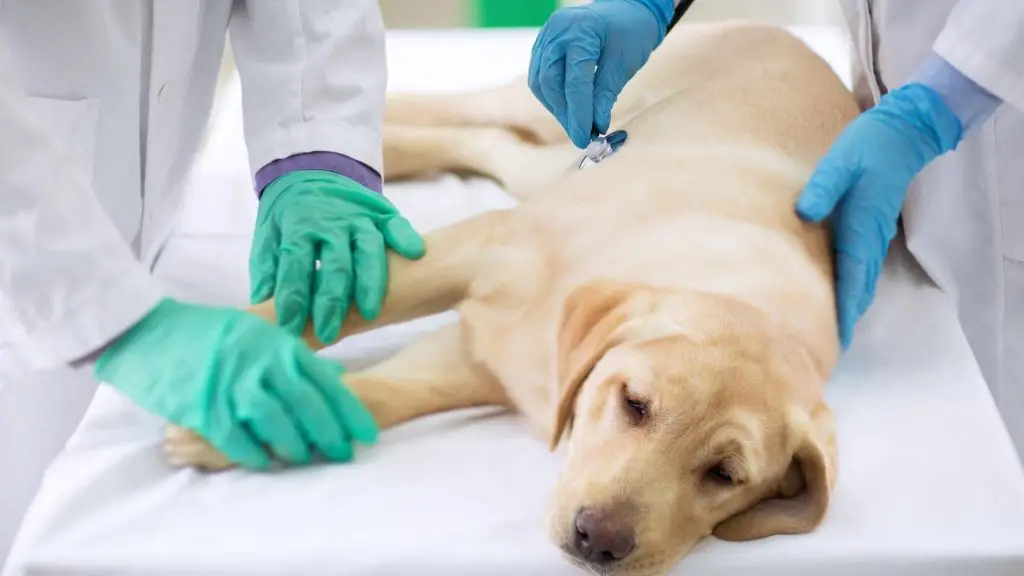
If you think your dog may have Parvo, it is important to seek veterinary care immediately. The sooner you can get your dog to the vet, the better their chances are of surviving this deadly virus.
At the vet, they will likely perform a physical exam as well as some diagnostic tests, such as a fecal sample or blood work. Treatment for Parvo typically includes IV fluids to help prevent dehydration, antibiotics to fight infection, and pain relief.
In severe cases, your dog may need to be hospitalized for treatment. However, with early intervention and proper care, most dogs can recover from Parvo and go on to live long and healthy lives.
Final Thoughts
Parvovirus is a serious and potentially deadly virus that can affect dogs of all ages. However, by vaccinating your dog and taking some simple precautions, you can help to protect them from this disease.
If your dog’s poop smells like rotting meat, has blood in it, and is runny, it’s crucial that they see a vet. These are all signs of the Parvovirus, and it’s important that they receive proper treatment and it’s not ignored.
Other posts you might find interesting:
My Dog Has a Sore Bum What Can I Put On It? (Explained!)
